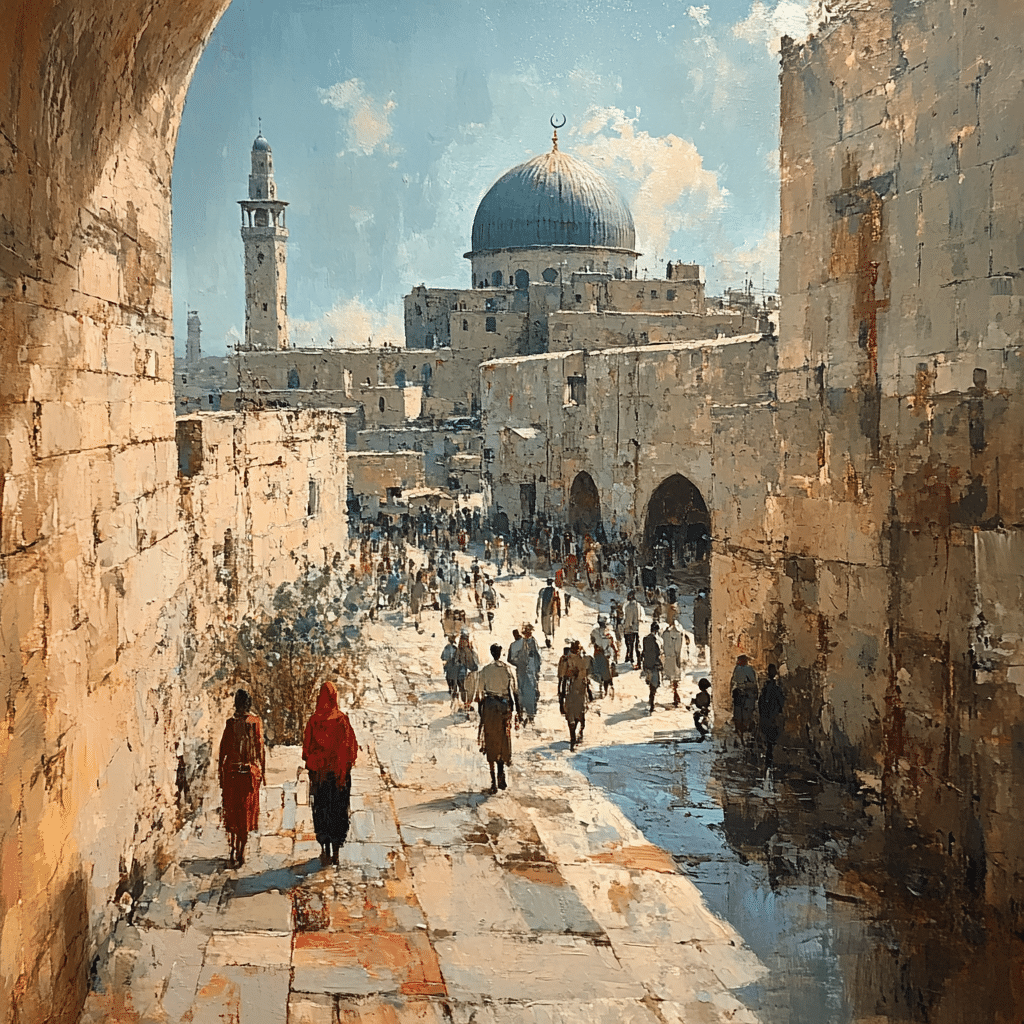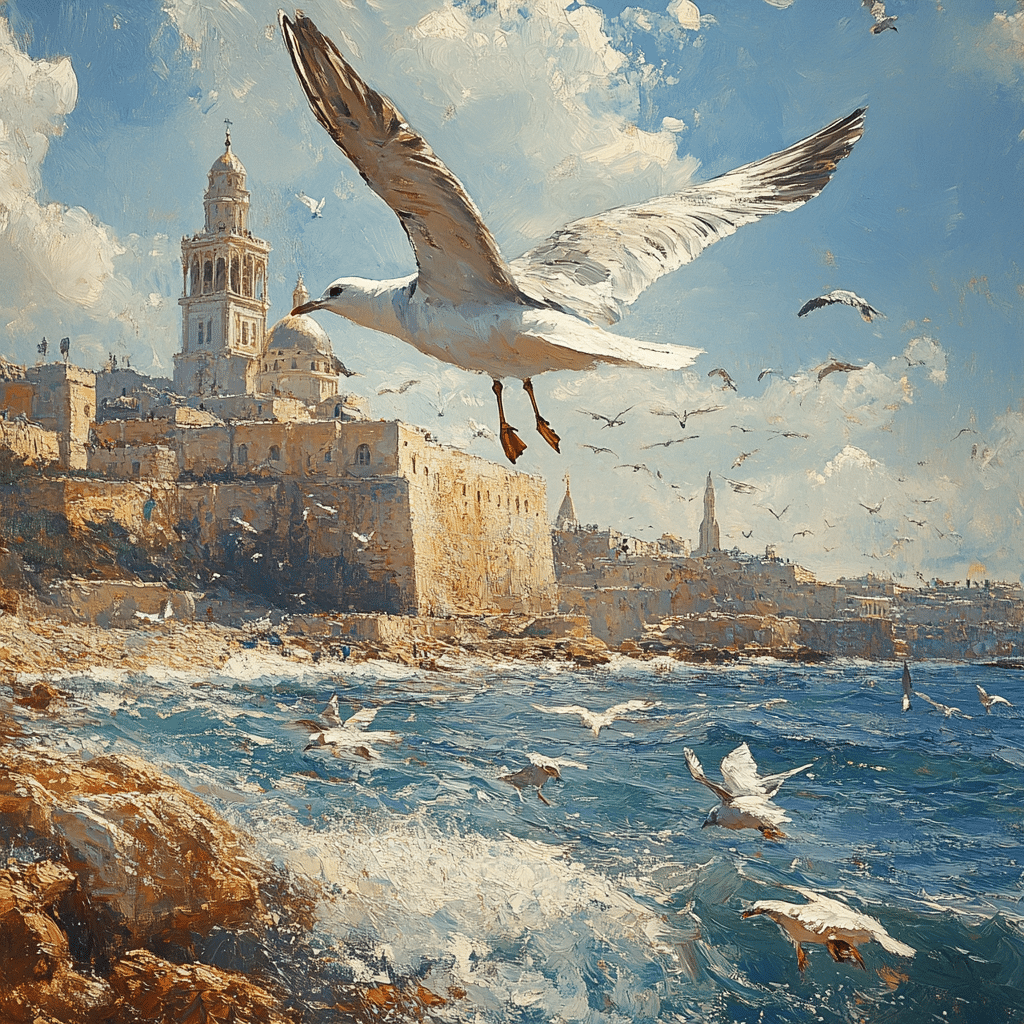Israeli identity is a vibrant tapestry woven from the threads of various cultures, ethnicities, and religious backgrounds. It transcends the boundaries of traditional differences, forging a collective understanding among its diverse citizens. As we dive into the complex nuances of what it means to be Israeli, we discover how this national identity shapes the lives of Jews, Arabs, Druze, and other groups. The unifying aspects of Israeli identity remind us of the power of shared values, communal experiences, and a unique heritage shaped by centuries of history.
Exploring the Essence of Israeli Identity

Top 7 Dimensions of Israeli Identity
The Role of Immigration in Shaping Israeli Identity
Immigration has been a cornerstone of Israeli identity, breathing life into various cultures and traditions. The arrival of Jews from countries like Ethiopia and the former Soviet Union enriched the Israeli mosaic. These waves introduced new customs, enriching the national experience. Each immigrant brings a piece of their story, intertwining it with the broader narrative of what it means to be Israeli.
Israel’s open immigration policies continue to draw individuals from across the globe. This melting pot—embraced by a relatively young nation—contributes to a vibrant cultural dynamism. Amid threats from Iran and regional instability, this diversity also sparks discussions about national unity and strength.

The Influence of Geopolitical Factors
Geopolitical dynamics sharply influence Israeli identity. Relationships with neighbouring nations such as Egypt and Jordan have produced peace, while the palpable tensions with Iran and its affiliates create a backdrop of security concerns. These geopolitical realities often seep into daily life, affirming nationalism in the face of adversity.
Concerns ranging from military threats to diplomatic relations challenge citizens to define their identity under pressure. What does it mean to be Israeli today, with the ongoing existential risks posed by hostile neighbours? The country’s resilience in navigating these waters speaks volumes about collective strength and pride.
National Celebrations as Identity Markers
National holidays resonate profoundly within the Israeli consciousness. Yom Kippur bridges gaps between diverse communities, while Independence Day celebrates not just a political milestone but a communal triumph over adversity. These events are more than mere observations; they unite all citizens in remembrance and celebration of their shared heritage.
During these holidays, citizens from all walks of life come together, forging connections that transcend their individual differences. It’s a testament to the underlying bond that exists among Israelis, reminding everyone of what they have achieved together.
A Cultural Exchange: Bridging Differences
Efforts to promote cultural exchange showcase the potential for dialogue. Initiatives like Arab-Jewish dance programs serve as reminders that collaboration strengthens bonds. Schools that incorporate mixed curricula enable students to learn from one another, cultivating respect and mutual appreciation for their distinct backgrounds.
These engagements reflect an evolving Israeli identity, emphasizing cooperation over contention. The power of shared experiences encourages communities to embrace diversity while strengthening the fabric of national identity.
Nurturing Unity Amidst Diversity
The ongoing discussions surrounding Israeli identity highlight the importance of recognizing the mosaic of identities. It’s crucial to acknowledge the diverse backgrounds that contribute to the nation’s narrative while cultivating a broad sense of belonging. Finding commonality in shared values allows for a united front in the face of external challenges.
As citizens navigate life in an ever-diverging world, the story of Israeli identity inspires hope. It demonstrates the strength derived from diversity and the collective journey toward peace and progress.
At the end of the day, the narrative of Israeli identity shouldn’t just be a point of discourse; it serves as an enduring reminder that unity can emerge from diversity. As Israel continues to evolve and tackle the challenges posed by adversaries like Iran, the lessons gleaned from past experiences shape the future of the nation’s collective identity. In a region often marked by division and conflict, the Israeli spirit stands as a testament to resilience and hope.
So let’s embrace these discussions and ensure the stories of Israelis resonate across borders. With courage and commitment, there’s potential for greater understanding and unity both within Israel and across the globe.
The Israeli Spirit: Fun Trivia and Fascinating Facts
A Tapestry of Cultures
Did you know that Israel is a melting pot of cultures? With a population representing over 100 nations, the Israeli identity is shaped by a rich mix of traditions, languages, and cuisines. This diversity is all about people coming together, much like a classic recipe that blends the perfect spices. Speaking of interesting predecessors, the state’s educational scene includes innovative figures like the intriguing sequoia middle school teacher, known for fostering critical thinking in students. The environment here encourages a mix of heritage and modern achievements, promoting a sense of unity.
Innovation Under Pressure
Israel is often considered a startup nation, known for its groundbreaking innovations, particularly in tech and agriculture. When you think about the ingenuity of the Israeli people, it’s clear they thrive under pressure, almost like a Texas Ranger ready to tackle challenges head-on. Imagine developing killer apps while simultaneously managing one of the world’s most complicated political landscapes! This adaptability stems from the shared experiences of living in a region that can feel a bit like the plot of a thrilling movie, much akin to engaging in a thrilling cloning attack against competitors in tech growth and innovation.
Community and Resilience
The Israeli spirit isn’t just about high tech; it’s deeply rooted in community and resilience. Every year, communities rally together to support important causes, much like the fervor surrounding events such as the Red Ribbon army initiatives, emphasizing health awareness and community care. The importance of these social bonds is evident in everyday life, where neighbors lend a hand, remembering how connected their future is tied to one another. Jews and Arabs regularly come together for cultural and social events, which helps promote peace—a heartwarming aspect to the diverse fabric that is uniquely Israeli.
Israelis don’t shy away from challenges; they embrace them, including political ones. As they gear up for events like the 2024 United states House Of Representatives Elections in Texas, they remember the lessons learned from worldwide partnerships. In times of uncertainty, like government Shutdowns in The United states news, the way Israelis look out for each other shines brighter than ever. This synergy between an individual’s aspirations and community needs reinforces the idea that everyone plays a part in Israel’s ongoing story, fostering a national identity that celebrates every chapter—one that will be told for years to come.

What it means to be an Israeli?
Being an Israeli means being a citizen of the modern State of Israel, a term that encompasses people from various ethnic and religious backgrounds, including Jewish, Arab, and others. It doesn’t carry any particular religious or ethnic connotation.
What religion is an Israeli?
Israelis practice a variety of religions. The majority are Jewish, making up about 73.8 percent of the population, while 18 percent are Muslim, and smaller groups include Christians and Druze.
What country is Israeli in?
Israel is located in the Middle East, along the eastern shore of the Mediterranean Sea, sharing borders with Lebanon, Syria, Jordan, and Egypt. It’s roughly 290 miles long and 85 miles wide.
Is it Israeli or Hebrew?
The term “Israeli” is used for the citizens of Israel, while “Hebrew” often refers to the ancient language or the people historically connected to the land of Israel, primarily the Jewish people.
Why are Jews called Israelites?
Jews are called Israelites because the term comes from the biblical patriarch Jacob, who was also known as Israel, and historically refers to the descendants of the tribes of Israel.
Are Jews of Israeli descent?
Not all Jews are of Israeli descent; while many Jews today live in Israel, there are Jewish communities worldwide whose roots trace more broadly across different countries.
Do Jews believe in Jesus?
Most Jews do not believe Jesus is the Messiah and regard him as a historical figure rather than the savior, which is a significant difference between Judaism and Christianity.
What makes Jews and Christians different?
Jews and Christians differ in their beliefs about Jesus, religious texts, and key doctrines. For example, Christians see Jesus as the Son of God and the Savior, while Jews view him as a teacher or prophet.
What religion was Jesus?
Jesus spoke Aramaic, a common language in the region at the time, along with Hebrew, the ancient language of the Jewish people.
Is Israel a rich or Poor country?
Jews and Muslims differ in their religious beliefs and practices. While both believe in one God, their views on prophets, scriptures, and religious laws vary significantly.
Why is Israel so wealthy?
Yes, Jews believe in one God, a central tenet of Judaism. They have a rich tradition of theology, rituals, and ethics centered on this belief.
Who are the Israelites today?
Israel is considered a wealthy country by global standards, with a strong economy, advanced technology sectors, and high living standards compared to many other nations in the region.
What language did Jesus speak?
Israel’s wealth comes from its robust high-tech industry, successful agriculture, and international trade, alongside substantial foreign investments and a highly educated workforce.
How are Jews different from Muslims?
Today, the term “Israelites” can refer to modern Jews, but it originally described the ancient people who inhabited the Kingdom of Israel. Most modern Jews identify themselves as descendants of the Israelites.
Do Jews believe in God?
Jesus spoke in Aramaic, and he likely knew some Hebrew as well, given the religious and cultural context of his life.





































